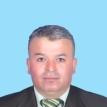The Impact of the Social Characteristics on the Controlling Approach on the Elite of the Legislative Members in the Palestinian Political System (1996-2005)
Thu, 2014-09-11 10:23 — Saqer Mahmoud Hamad Jabali
Journal Title, Volume, Page:
An-Najah University Journal for Research- Humanities, Volume 23, Issue 4
Year of Publication:
2009
Preferred Abstract (Original):
The study focused on the analysis of the social characteristics of the legislative elite and their tendency towards using questions, which amounted to 444 compared with the interrogations which were only (3). The Legislative Council did not use the no-confidence option at all against the government. The study showed that 27% of the deputies who went to the ministers and questioned them were independent seculars, independent Islamists, one from "Fida" party, while 73% from Fatah movement. The study also showed that 90.4% were bachelor's degree holders, or above, who have questioned ministers. This indicates that there is a significant relationship between the level of education of member s of the legislative elite and the performance of their oversight role. Moreover, there is a decline in the questions asked by the members with low income; the questions asked by the members with middle-income and those with high-income were the same during the first ten sessions of the work of the Legislative Council. The researcher noticed that 61.4% residents in the West Bank and Gaza Strip went to ask the government, whereas 54.8% refugees went to question the government. Professionals and technicians (38.31%) occupied first place in terms of their oversight and direct questions to members of the government, while medical doctors represent 15.38%, university professors 13.46%, and lawyers came in fourth place (5.77%), followed by pharmacists (1.92%).
| Attachment | Size |
|---|---|
| The Impact of the Social Characteristics on the Controlling Approach on the Elite of the Legislative Members in the Palestinian Political System (1996-2005) | 306.49 KB |

